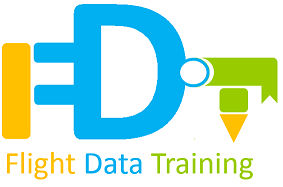CVR Readout & Report: Comprehensive Training Course
Course Description: Are you seeking a course that will equip you with the knowledge and skills to perform CVR (Cockpit Voice Recorder) readout and reporting? If so, this course is tailored to your needs. By enrolling in this program, you will delve into the intricacies of CVR systems, regulatory requirements, and the complete process of CVR data processing, inspection, and analysis. By the end of this course, you will be proficient in CVR readout and report generation, ensuring compliance with industry standards.
Why Enroll?:
- Gain comprehensive knowledge of CVR systems and their significance in aviation.
- Understand the regulatory requirements imposed by aviation authorities.
- Learn the process of downloading and processing raw CVR data.
- Master CVR data inspection, channel synchronization, and data integrity.
- Explore the complexities of CVR data analysis and reporting.
- Enhance your career prospects and credibility in the aviation industry.
Requirements:
- Basic math skills
- Familiarity with aircraft systems
- Basic knowledge of civil aviation regulations
Target Audience:
- Aviation Safety Professionals
- Flight Data Analysts
- Airline Engineers
- Technical Services Personnel
- Aircraft Maintenance Staff
- Aviation Inspectors
Curriculum:
- Introduction to CVR systems
- Regulatory requirement of CVR
- CVR data download
- Raw CVR data processing
- CVR Data Inspection/Check
- CVR Data Channel synchronization
- CVR Data Recording duration
- CVR FSK Signal
- CVR data integrity
- CVR data signal sources
- Recording interference
- Data recording saturation
- Data Quality Rate
- Data Quality Issue
- CVR Data Analysis report
- Exercise
- Exam
-
Introduction to CVR Systems: Begin with an in-depth introduction to Cockpit Voice Recorder (CVR) systems. Understand their vital role in aviation safety and the significance of recording cockpit conversations and ambient sounds.
-
Regulatory Requirements of CVR: Explore the regulatory landscape governing CVR systems, including requirements set forth by aviation authorities such as the FAA, EASA, and ICAO. Learn how compliance with these regulations is essential for aviation safety.
-
CVR Data Download: Delve into the technical process of downloading raw CVR data from the recording devices. Understand the equipment and procedures involved in retrieving the crucial data.
-
Raw CVR Data Processing: Learn how to process and prepare raw CVR data for analysis. This involves data conversion and formatting to ensure it can be effectively inspected and interpreted.
-
CVR Data Inspection/Check: Gain expertise in inspecting and checking CVR data for anomalies, irregularities, or issues. Understand the importance of data quality and integrity in CVR analysis.
-
CVR Data Channel Synchronization: Explore the synchronization of CVR data channels, ensuring that audio and data streams are aligned accurately for later analysis.
-
CVR Data Recording Duration: Understand the factors that influence the duration of CVR data recording. This includes considerations such as flight duration, storage capacity, and data retention policies.
-
CVR FSK Signal: Learn about the Frequency-Shift Keying (FSK) signal used in CVR data transmission. Understand its role in encoding audio and data for storage and analysis.
-
CVR Data Integrity: Discover techniques and practices for ensuring the integrity of CVR data throughout the recording process. This involves measures to prevent data corruption or loss.
-
CVR Data Signal Sources: Explore the various sources of signals captured by CVR data recordings. This includes communication between cockpit crew members and ambient sounds in the cockpit environment.
-
Recording Interference: Understand potential sources of interference that may affect CVR data quality. This knowledge is crucial for identifying and mitigating interference issues.
-
Data Recording Saturation: Learn about data recording saturation, which occurs when the recording device reaches its storage capacity. Understand the implications and how to handle saturation events.
-
Data Quality Rate: Explore the concept of data quality rates in CVR recordings. Understand how data quality is assessed and the importance of reliable data.
-
Data Quality Issues: Dive into common data quality issues that may arise during CVR recordings. Learn how to recognize, troubleshoot, and address these issues to ensure accurate data.
-
CVR Data Analysis Report: Understand the process of analyzing CVR data and generating comprehensive reports. This includes extracting valuable information, summarizing findings, and presenting results for investigative purposes.
-
Exercise: Apply your knowledge and skills by engaging in practical exercises related to CVR data analysis. These exercises provide hands-on experience in analyzing real-world CVR data.
-
Final Exam: Test your understanding of CVR readout and reporting through a comprehensive final exam. This exam assesses your proficiency in all the topics covered in the course.
© 2025 Flight Data Training
